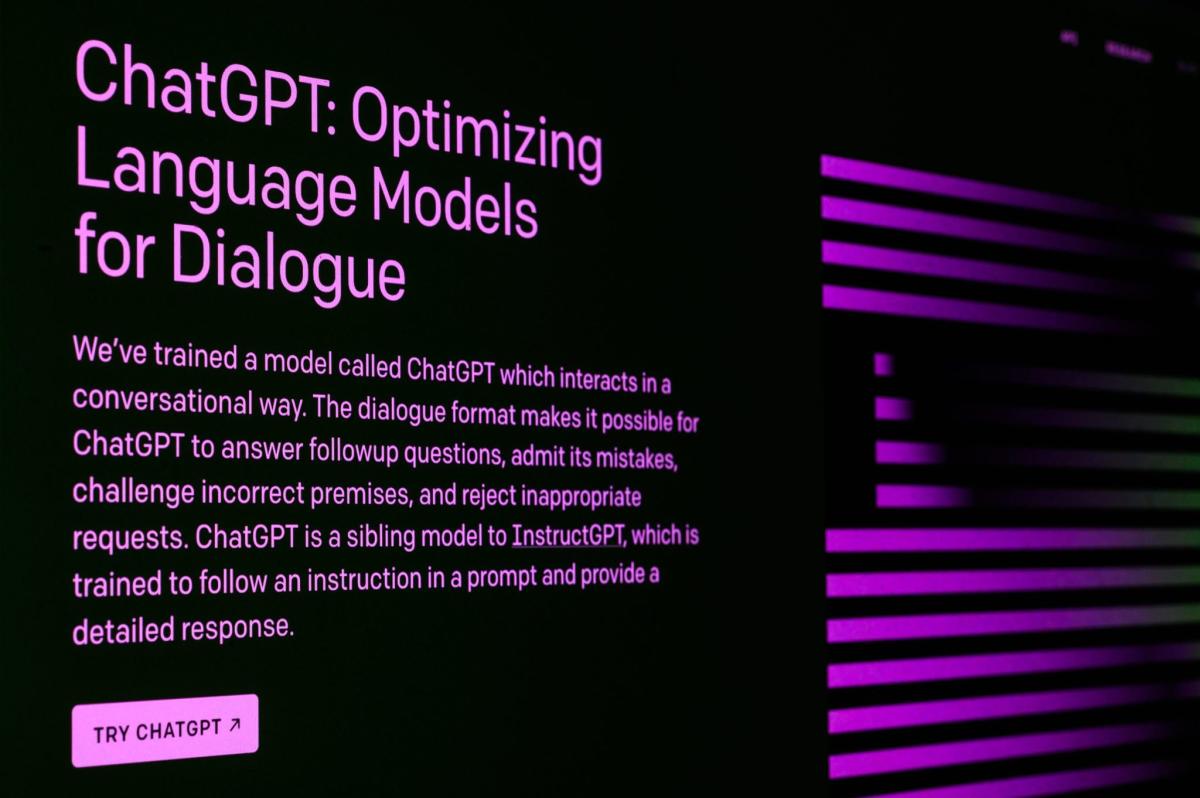Last updated on September 7th, 2023 at 12:56 pm
The Guardian’s decision to block ChatGPT from using its content for training AI models has raised concerns about the quality and reliability of information fed to artificial intelligence systems. While the importance of protecting intellectual property is understood, there is a need for a wider debate on the matter. Training generative AIs on trusted and respected sources of information is preferable, as it ensures accuracy and balance. The article highlights that if AI systems are denied access to credible outlets like The Guardian, The New York Times, and The Washington Post, and are instead exposed to content from the rightwing press, the outcome could be detrimental, with future generations absorbing the biases of today’s media landscape. It calls for a focus on educating AI systems with accurate information to prevent the overwhelming prevalence of misleading or false content on the internet.
The Guardian’s block on ChatGPT using its content is bad news

Disappointment over the Guardian’s decision
I was disappointed to read that the Guardian has decided to prevent OpenAI from using its content for training ChatGPT, a powerful language model. While I understand the need to protect intellectual property, this decision raises concerns about the quality of information that will be available for training AI systems. Generative AI has the potential to shape news content and various aspects of our daily lives, and it is essential that the information it is trained on can be trusted and respected.
The Guardian’s decision comes after other organizations have also blocked OpenAI’s access to their content. While protecting intellectual property is important, it is crucial to consider the broader implications of denying AI systems access to reliable sources of information. By excluding trusted and respected outlets like the Guardian, there is a risk that AI training will rely on biased or inaccurate content, which could have far-reaching consequences for the use of AI in generating news and other content.
![]()
Importance of trusted and respected information
Generative AI has the potential to revolutionize the creation of news content and other forms of information. However, this also means that the quality and integrity of the information it is trained on become even more crucial. It is important to have a wider debate on the commercial arrangements surrounding intellectual property, especially when it comes to AI training.
Training AI systems using trusted and respected information can help ensure that the output produced by these systems is accurate, unbiased, and reliable. By feeding AI systems with quality data, we can maintain the integrity of news content and avoid amplifying biases or spreading false information. It is crucial that organizations like the Guardian reconsider their decision and contribute to the development of AI by providing access to their content for training purposes.

Banning ChatGPT affects the Guardian’s tradition of truth and justice
The Guardian has a long-standing tradition of fighting for truth and justice. By choosing to block ChatGPT from accessing their content, the Guardian prioritizes short-term commercial considerations over its commitment to providing accurate and objective information. This decision undermines the Guardian’s reputation as a trusted news outlet and raises questions about its dedication to journalistic integrity.
If AI systems like ChatGPT are denied access to reputable and trustworthy sources such as the Guardian, the Washington Post, and the New York Times, they may end up relying on less reputable sources for information. This could lead to AI systems absorbing biases and prejudices present in right-wing press outlets, ultimately shaping the information they generate and perpetuating misinformation or biased narratives.

Concerns about the outcome of restricted access to reliable sources
The consequences of denying AI systems access to reliable sources of information are far-reaching. If reputable outlets like the Guardian, Washington Post, and New York Times are inaccessible for AI training, there is a risk that AI systems will rely on less reliable sources. This could potentially lead to AI-generated content being influenced by outlets like the Daily Mail, the Sun, and the Daily Express, which may have their own biases and agendas.
Denying access to reliable sources not only affects the accuracy and trustworthiness of AI-generated content but also raises concerns about the information future generations will be exposed to. Without access to a diverse range of reliable sources, AI systems may inadvertently perpetuate biased narratives or spread misinformation, shaping the views and opinions of future generations based on a limited and potentially skewed set of information.
The need for accurate and balanced content for AI training
Artificial intelligence is an unstoppable force that will continue to shape various aspects of our lives, including the production of news content. To ensure the responsible and beneficial use of AI, it is crucial to prioritize AI education and training with accurate and balanced content.
By providing AI systems with reliable and respected information, we can help ensure that the AI-generated content aligns with journalistic standards, respects factual accuracy, and presents a balanced perspective. This requires collaboration between AI developers, content providers, and trusted news outlets to create a training environment that upholds quality journalism and safeguards against the spread of misinformation.
Conclusion
The Guardian’s block on ChatGPT’s access to its content is a concerning decision that not only jeopardizes the quality of AI-generated content but also raises questions about the Guardian’s commitment to truth and justice. To harness the potential of AI in generating news content, it is crucial to prioritize the use of accurate and balanced information for AI training. Collaboration and open dialogue among stakeholders are necessary to ensure that AI systems are trained on content that can be trusted, respected, and aligned with journalistic standards.
Original News Article – The Guardian’s block on ChatGPT using its content is bad news
Visit our Home page Here

